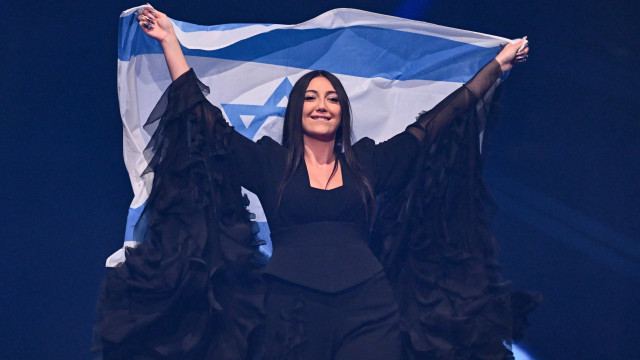The President of Israel, Isaac Herzog, responded on Monday to the potential expulsion of the country from the Eurovision Song Contest due to the offensive in the Gaza Strip, emphasizing that he has seen “dangerous processes that started with Eurovision and ended elsewhere.”
Herzog’s comments came days after the European Broadcasting Union (EBU) announced that member countries will “vote on the issue of Israel’s participation” in Eurovision at a General Assembly in November, due to “unprecedented diversity of opinions.”
“I have seen dangerous processes that begin with Eurovision and end in other places,” Herzog warned, quoted by The Jerusalem Post.
“The delegitimization of Israel and the attempt to exclude us from all possible arenas are actions intended to weaken us. It starts with the Eurovision Song Contest but reaches vital issues for us. All arenas are important,” he added.
In recent weeks, countries including Ireland, the Netherlands, Spain, Slovenia, and Iceland have called on the EBU to expel the Middle Eastern country due to the offensive in the Gaza Strip.
The Dutch state broadcaster, AVROTROS, stated that “it can no longer justify Israel’s participation in the current situation, given the severe and ongoing human suffering in Gaza.”
Ireland’s public broadcaster, RTÉ, also stated that the country “will not participate in the Eurovision Song Contest 2026 if Israel’s participation is confirmed.”
The most recent position came from Spain, with RTVE’s Board of Directors announcing on Tuesday that it would boycott the Eurovision Song Contest in 2026 if Israel participates.
“Spain will withdraw from Eurovision if Israel continues in the contest,” wrote José Pablo López, president of RTVE, on the social media platform X.
Spain’s position is significant as it is the first ‘Big 5’ country to announce the boycott. The ‘Big 5’ includes the UK, France, Germany, and Italy, alongside Spain, as they are the public broadcasters that contribute the most funds to the European Broadcasting Union (EBU), thus supporting the organization of the Eurovision Song Contest.
In response to these calls, the EBU announced last week that it decided to move up to November the meeting to discuss and vote on Israel’s participation in the 70th edition of the Eurovision Song Contest, to be held in May in Vienna, Austria. The discussion was initially scheduled for December during the General Assembly.
In a letter sent to member countries and published by the Austrian newspaper Kronen Zeitung, EBU President Delphine Ernotte stated that the Executive Board recognizes there is “an unprecedented diversity of opinions” regarding the participation of the Israeli broadcaster KAN.
“The board believes that the Union supports inclusion and an open cultural dialogue that reflects the values of Public Service Broadcasting. However, the Board acknowledged that reaching a consensual position on KAN’s participation would not be possible,” Ernotte stated.

The European Broadcasting Union admitted that “there is an unprecedented diversity of opinions” regarding Israel’s participation in the 2026 Eurovision Song Contest. A vote is scheduled for November.
Highlighting that the EBU “has never faced a division like this,” the official added that the Executive Board agreed that Israel’s participation “deserves a broader democratic basis for a decision, in which all members should have a say.”
Therefore, an extraordinary session of the General Assembly will be held in early November “for members to vote on the participation issue in the 2026 Eurovision Song Contest.”




